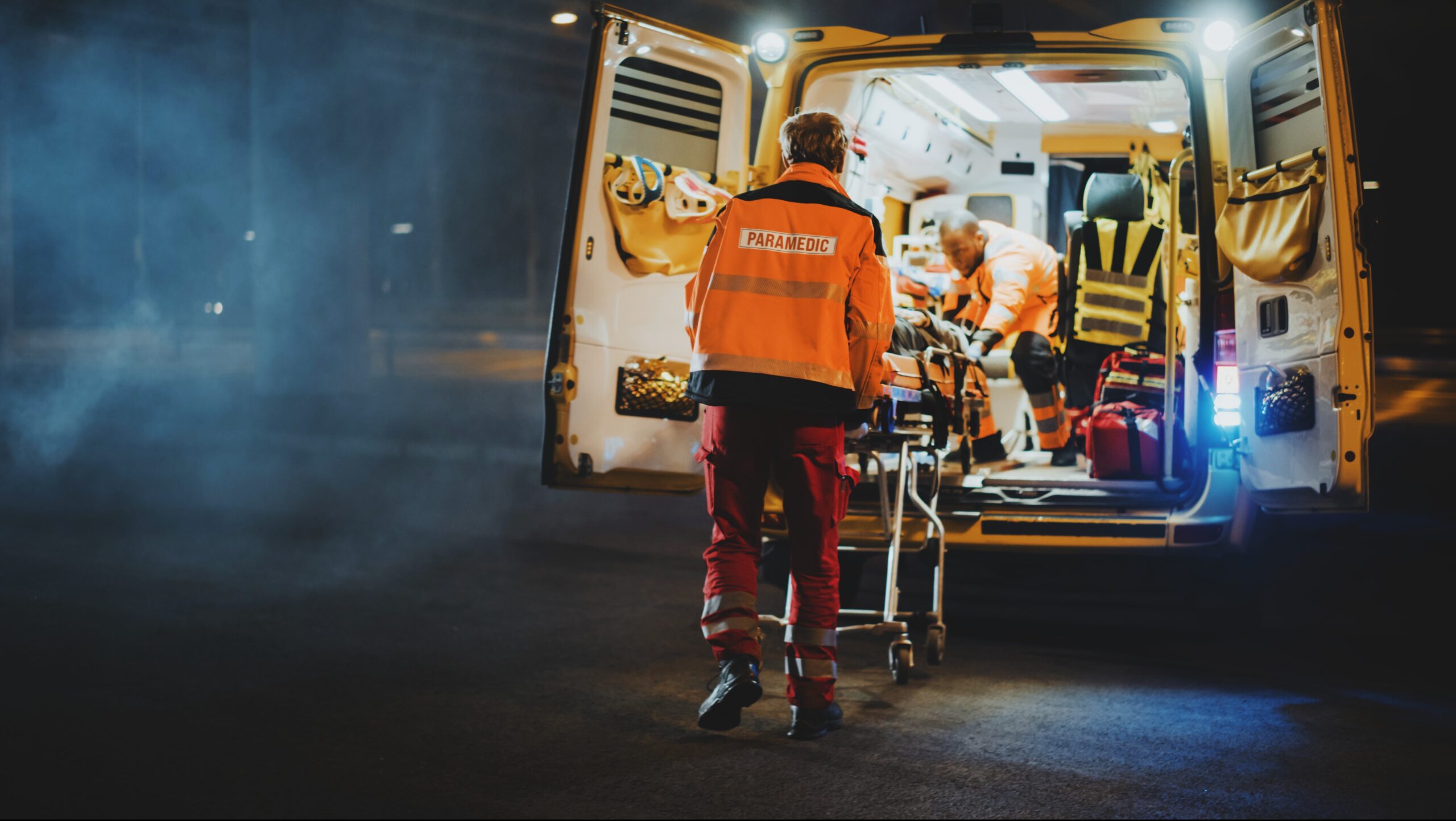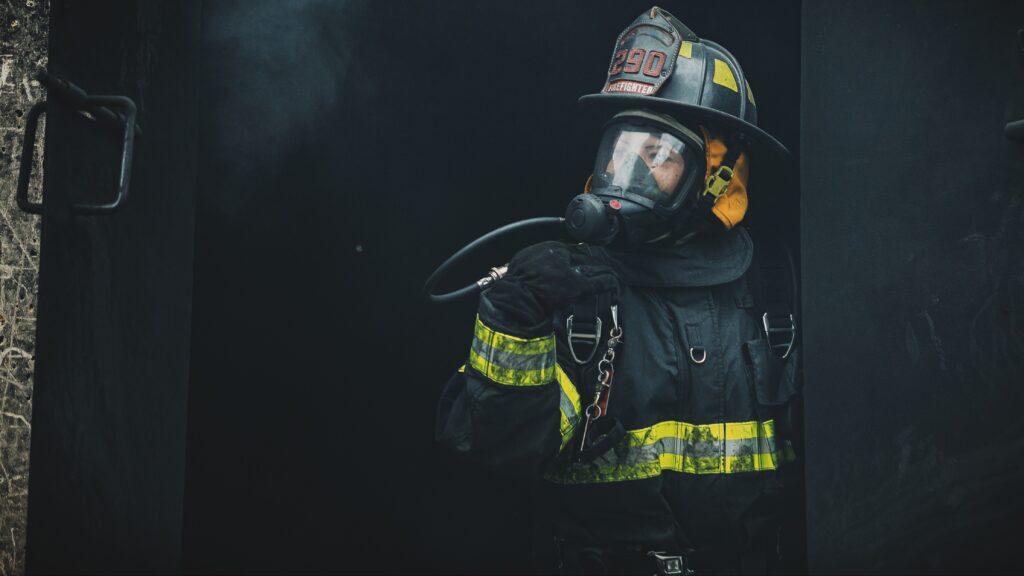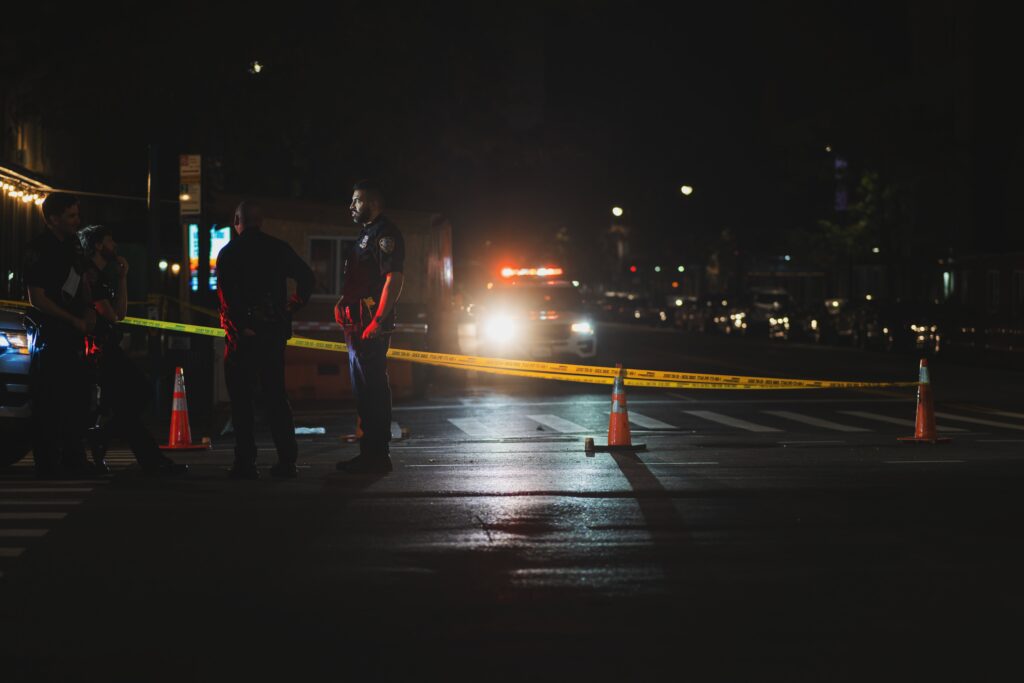“You carry things no one sees. And you do it in silence.”
First responders—that is, police officers, firefighters, EMTs, and paramedics—walk into the worst days of people’s lives and do their best to bring order, care, or safety to a situation. They stem the bleeding, douse the fire, and stand in between danger and the general public. Their role requires them to run towards any chaos, sirens blaring, and deal with whatever fresh hell they find when they get there.
We celebrate them as heroes, give them free coffee, and go about our lives with the knowledge that when sh*t hits the fan, we have people for that; and we don’t have to think about what happens when those people go home. Sure, we may occasionally share statistics on suicide rates among police, substance use among firefighters, depression in EMTs, then we dust our hands and carry on. And that’s not a critique of society as much as it is an acknowledgment that we have a very limited understanding of what this population is carrying or how we can help support them.
This isn’t an article sharing the latest mental health stats, nor is it a call-to-action to “thank a hero.” Both have been done ad nauseam. Instead, we’re examining why, despite national progress around mental health awareness, so many first responders are still being left behind when it comes to substance use and trauma, and the cultural and occupational barriers that make asking for help a death knell to their career.
Through the voices of a retired police officer, a longtime paramedic, and a licensed trauma therapist, this piece takes a closer look at what’s really happening behind the scenes—and what hope can look like when recovery is possible.
The Burden of Knowing
There’s a unique weight that comes with being a first responder. Not just the physical demands or long shifts—but the emotional residue of what you witness again and again. And again.
You don’t just see car crashes, overdoses, suicides, house fires, and domestic violence—you step into them. You’re the one cracking ribs during chest compressions. You’re the one telling a mother her child didn’t make it. You’re the one who has to stay calm when the unimaginable becomes reality.
“You get used to dead bodies. You get used to the smell. You get used to the screams,” said Michael G., a paramedic of 25 years. “But the ones that stay with you are the ones that were preventable. That didn’t need to happen. And there are a lot of those.”
Over time, that weight doesn’t just live in your memory—it begins to separate you from the world around you. While others move through life believing that most things will work out fine, you’ve seen what happens when they don’t. You’ve seen how quickly a normal day can become someone’s worst. You carry the proof.

Approximately 30% of first responders develop behavioral health conditions, including depression and PTSD, compared to 20% in the general population.
Anna Griest, a licensed professional counselor and Recovery Unplugged’s Clinical Director of Virtual Services, calls this the burden of knowing—a reference to the novel The Giver by Lois Lowry.
“In the book, there’s one person who carries all the painful memories of the community,” she says. “and many first responders can relate to that feeling. You have to exist in the same world as everyone else, but your version of the world is heavier. You’ve seen how depraved and scary it can be. And no one else around you has to carry that.”
This is more than trauma—it’s disconnection. It’s the quiet awareness that you walk through a reality most people don’t know exists, and you’re expected to blend in.
“I never brought it home,” Michael adds. “I didn’t want my family to know what it was doing to me. Sometimes that meant driving around aimlessly for hours before I walked through the door. It was the only way I could come back and be a husband or father worth having.”
The truth is, you don’t get to fall apart—not in front of your family, not in front of your team, and certainly not in public. When hearts all around you are breaking, there’s no room for yours to break too. So you carry it, because there’s nowhere to set it down.
But without space to fully process those feelings or understand the toll trauma has taken, it festers. As Anna points out: “Even if we don’t talk about trauma, the body keeps score. If it isn’t processed, it finds a way out—through your health, your relationships, your sense of self.”
PTSD affects about 15% of emergency medical personnel, 13% of rescue teams, 7% of firefighters, and 5% of police officers. And those numbers just reflect the ones who have asked for help. For some, it shows up as short tempers and sleepless nights. For others, it becomes something more destructive—something that looks like coping at first but eventually turns into addiction.

The Silence That Protects—And Destroys
Silence can feel like protection. It protects your partner, your kids, and your friends from the things you’ve seen. It protects your team from worrying whether you’re up for the next call. It protects your job.
“I never wanted to be the weak link,” said Lee Platt, a retired police officer. “The last thing you want is to be the one who can’t keep it together.”
For many first responders, saying “I’m not okay” isn’t just hard—it feels dangerous. It could mean being pulled from duty. It could mean being marked as unstable. It could mean being the one everyone has to work around. So instead, they don’t say it.
“You’re not going to raise your hand and say you’re struggling,” Lee said. “Because what if that makes you a liability?”
The silence makes sense. It’s protective. But over time, it becomes isolating. Many first responders go years—sometimes whole careers—without talking about what they’ve seen, what they’re feeling, or how it’s affecting them. And the impact doesn’t stop at work.
“I’d come home, and my wife would ask how my day was,” Lee said. “And I’d shut it down. I didn’t want to talk. I couldn’t talk. I didn’t want her in my head, because it wasn’t a good place to be.”
That kind of protective silence, though well-meaning, often builds walls between first responders and the people who care about them most. Intimacy starts to fray. Connection thins out. And the harder it becomes to explain what you’re feeling, the more likely you are to keep it buried.
“You want to be present. You want to be a good husband, a good dad,” Lee said. “But some days, it took everything I had just to walk through the door.”
This is one of the reasons many first responders turn to substances—not necessarily to party or escape, but just to feel something less. To quiet the anxiety, dull the anger, or slow the racing thoughts long enough to rest. It’s not always a conscious decision. Sometimes it’s just what works—for a while.
The Slippery Slope
Nobody becomes a first responder expecting to struggle with substance use. But for many, the line between coping and spiraling is thinner than it seems. You’re not drinking on the job. You’re not high when you respond to a call. You’re functional, and you’re doing your job—so what’s the problem?
“I used to say I was a functioning alcoholic,” said Lee Platt. “But there’s no such thing. There’s no functioning drug addict. That’s just me not dealing with my feelings.”
The rhythm of the job itself makes it hard to reset. First responders spend long stretches in a constant state of readiness—either in the middle of a call or waiting for the next one. That back-and-forth between adrenaline and stillness can be jarring. You might go from a school bus fire to sitting in complete silence back at the station. And then be expected to sleep.
“You kind of recognize that there’s an issue, but you bypass it,” Lee adds.
It’s not always about escaping reality, but about controlling your body and mind in unnatural conditions. Needing a pill to fall asleep after a high-stress call. Needing caffeine—or something stronger—to stay alert after twenty hours awake. Needing a moment of quiet that doesn’t come without chemical help. The body doesn’t always cooperate with the demands of the job, so you teach it to. Because you have to keep going.
“Every injury, every ache—it was an excuse to take a pain pill,” Lee said. “And then you’re back in the same routine again.”
This is the slippery slope: when substances don’t feel like indulgence, but necessity. When quieting your mind becomes essential to functioning. When sleep is impossible without something to make it happen. What makes it harder is that many first responders don’t realize how far they’ve gone until something breaks—a marriage, a relationship with a child, a shift in demeanor that someone else finally notices.
“For me, it was my daughter,” Lee said. “She told me she loved me, but she didn’t want to be around me. That was it. That was the moment I knew I had to do something.”
And sometimes, it’s not about getting better. It’s about knowing you can’t let it get worse.
The Risk of Reaching Out
There’s a reason so many first responders stay silent, even when things are falling apart. In a field built on trust, strength, and readiness, asking for help can feel like admitting you’re not fit to do the job. And that’s a risk most aren’t willing to take.
“You’re not going to raise your hand and say you’re struggling,” said Lee Platt. “Because what if that makes you a liability?”
Many first responders avoid seeking mental health support due to fear of being perceived as weak or unfit for duty. Nearly 37% of fire and EMS professionals have contemplated suicide, which is almost 10 times the rate of the general population.
The fear is layered. Fear of being marked unfit for duty. Fear of losing your paycheck. Fear of being seen differently by the people you rely on—and the ones who rely on you. For first responders, trust is foundational. The fear of losing it—especially within your own crew—can be enough to keep you silent. And even when mental health support is offered, it often comes with strings—like mandated evaluations, documentation, or the risk of being pulled from active duty. The message becomes clear: struggling is allowed, but only quietly. Only if it doesn’t interfere.

“Back then, mental health wasn’t something you talked about,” Lee said. “Especially not with your supervisors. You didn’t want anyone to know.”
The cultural expectation of strength can make it feel impossible to admit when you’re not okay. So instead, many first responders double down—staying quiet, pushing through, trying to manage it on their own. Until they can’t.
Anna Griest sees this dilemma often.
“As a society, we’ve made it more acceptable to say you’re not okay, and that’s great.” she explains. “But for first responders, there’s still a real risk in saying it out loud. Their livelihood depends very much on their stability.”
It’s a catch-22. The system encourages people to show up strong and reliable, but doesn’t always make space for the reality that strength and struggle can exist at the same time. For many, there’s no safe way to say “I need help” without feeling like that admission will cost them everything.
That’s why peer support and profession-specific care models matter. It’s why Lee believes the future of first responder mental health has to include people who’ve done the job, who understand the stakes, and who won’t turn asking for help into a reportable event.
“You don’t need someone to tell you what you’re feeling,” he said. “You need someone who’s felt it too.”
What Needs to Change
If we want to protect first responders, we can’t wait until they break down. We need systems where asking for help isn’t treated like a threat to your career, and where the people offering support actually understand the mental load of the job. That starts with peer support. Across my interviews, one theme became recurrent: the need to talk to someone who gets it.
“I don’t need someone to tell me what’s wrong,” Lee Platt said. “I need someone who’s been through it and can say, ‘Yeah, I’ve felt that too.’”
People in this line of work tend to open up more easily to someone who’s been there. Someone who understands the culture, the pressure, the things that don’t always translate to the outside world. But real change also means starting earlier. Michael G. now spends his time training the next generation of EMTs—many of them high school students. And for him, preparing them to do the job isn’t just about reading vital signs or loading stretchers—it’s about helping them understand the mental toll this work can take.
“You’ve got to get them ready not just for what’s going to happen around them, but what’s going to happen inside them,” Michael said. “We talk about stress, sleep, trauma, all of it—I’m doing them a disservice if I don’t try to prepare them for how much this work will fundamentally change how they think about and move through the world.”
Early education around mental health doesn’t just help prevent burnout or substance use later on—it also sends a powerful message: this is part of the job, and there’s nothing weak about talking about it.
Anna Griest agrees.
“We need to stop treating mental health as a sign that something’s gone horribly wrong,” she says. “Mental health is part of whole-person, human health. If we want to protect the people we depend on, we need to give them space to be human too.”
That includes creating systems where first responders can speak freely without fear of punishment. It means rethinking how we define strength—not as silence or stoicism, but as a willingness to be vulnerable and to confront the things that hurt you because doing so will allow you to keep going.
A Platform for Change
If we want to support first responders, we have to give them a voice and listen to what they’re really up against—whether it’s on the job, at home, or within themselves.
At Recovery Unplugged, we believe change happens when we create space for honest conversations about substance use, trauma, and what it means to carry the weight of the worst days. There’s no one-size-fits-all solution, but there is power in awareness, prevention, and collaboration. That includes peer support, early education, and mental health care that centers the lived experiences of those it’s meant to help.
If you’re struggling, there’s space for that. You deserve support that meets you where you are and helps you move forward. You’re not alone, recovery is possible.





















